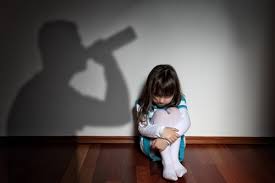
Alcohol abuse or drug addiction is a huge problem in our world today. Let me give you a feeling for how big a problem it is. Over 18 million Americans have alcohol problems. Over 20 million American adults (aged 12 and older) battled a substance use disorder More than 9 million children currently live in homes with an alcohol-dependent parent. About 1.6 million children aged 17 or younger resided in a two-parent household with at least one parent who had an illicit drug use disorder, and about 538,000 children resided in a single-parent household with a parent who had an illicit drug use disorder. And more than half of all American adults have a family history impacted along the way by alcoholism and addiction.
These statistics are worse than it sounds. Alcohol and drug abuse isn’t an individual problem. And it doesn’t end when the alcoholic or addict passes away, leaves, or even sobers up. Alcoholism and drug addiction affects both the alcoholic, addict and everyone who loves him or her–You’re not alone!
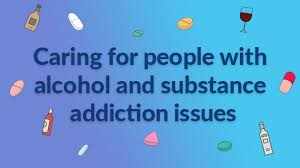
I’m addressing this blog mainly for teens or children of alcoholics and addicts because I think children get the shortest end of the stick in this struggle. I understand how children and teens feel helpless since I have two grandchildren that have endured the throes of addiction in their family as well.
So if you know of a child that is need of help you can better direct them with loving grace, spiritual help or professional help.
There is Hope…
My heart and care goes out to all you teens and children going through this nightmare. Hold onto your hope while I discuss some ways to help you…
First of all, do you believe in God and the power of prayer? I hope so because God is good and He is always there for us! If you are confused about God speak to a Christian person that believes in God or simply ask God to help you by praying a simple prayer to Him. It does not have to be a long, fancy prayer. Speak from your heart.

The disciples went and woke him, saying, ‘Master, Master, we’re going to drown!’ He got up and rebuked the wind and the raging waters; the storm subsided, and all was calm. – Luke 8:24
God doesn’t want us to stay stuck, our faces buried in the dirt from sorrow and grief… He wants us to look up, to Him.
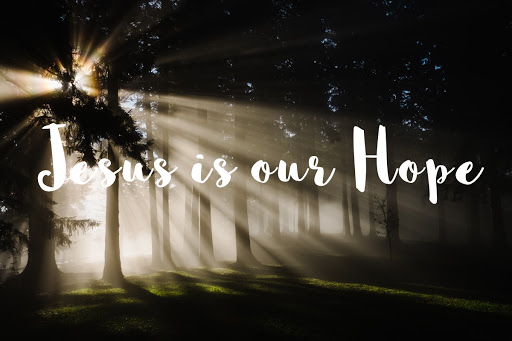
There’s also Groups like Alcoholics Anonymous, and Adult Children of Alcoholics, all designed to help family members along with the alcoholic. There are long term faith based recovery programs for addiction for your mom or dad to seek help for their alcoholism or addiction. There’s help for teens which I will discuss at the bottom of this blog. Just know there is spiritual help and professional help for your parent and for yourself in this traumatic experience of addiction.
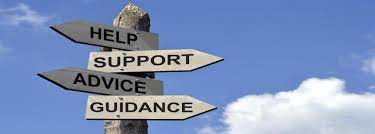
I’m personally familiar with The Father’s Heart or Adult & Teen Challenge (for your mom or dad)…So you can help them by seeking help for addiction or alcoholism for your parent(s) and you can seek help for yourself if your family has been impacted by alcohol or drugs. Remember, within each of us lies the capacity to grow and alter the way we act and feel. And that doesn’t mean that God will give us peace from the storms of life. He will instead give us peace in the midst of the storms of life.
Five Ways You Are Not Alone…

- In a group of four friends, the stats say at least one of those friends lives in a home with a parent with an addiction.
- If you’re at a party where you’re one of 12 kids – and you have a parent with addiction – the chances are there are at least two other kids at the party who also have a parent with an addiction problem.
- In a class of thirty kids – if you have a parent with an addiction problem – the stats say at least six other kids in that class also have a parent with an addiction problem.
- In a high school of about 500 kids – which is the national average for public schools – with 125 kids per grade, the stats say that about 31 kids in each grade level are likely to live in a home with a parent with an addiction.
- If you’re a teen in an average size high school – and one of your parents has an addiction problem – the stats say that there are 124 other kids in your high school who also have a parent with an addiction problem.

That’s why we mean it when we say you’re not alone. We know you already know what 25 percent is, theoretically, in math class – but seeing it like that changes things. It shows you that at any given moment during your day outside the home, there’s someone who can relate to some, if not most, of what you’re going through – and they’re probably within arm’s reach.
We want you to share this fact with your siblings and any friends of yours who are in the same boat, navigating the rough seas of a family living with addiction.
Things Teenage Children of Parents With Addiction Should Know…
In 2019, a man named Jerry Moe, director of children’s programs at a world-famous alcohol and drug addiction treatment center wrote a book and published a series of online resources for kids of parents with addiction.

Jerry is open about the fact that his father had a severe drinking problem, how it affected the dynamics of his family, and his journey from the pain of addiction to the path of recovery. We’re talking about Jerry’s pain, not his father’s. Because it’s important for you – the teenager reading this – to understand that addiction affects you, that it can be a hard and painful thing to deal with, and that when you start to understand it, you yourself are on the road to recovery.
But we’re talking about the things you need to know – so we’ll get right to it. Here are four facts that you need to know about your parents and their alcohol or drug addiction:
1. Some say Addiction is a disease...
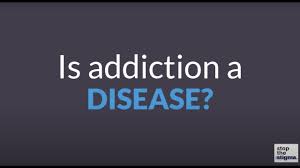
Your mom or dad is not a bad, weak, or morally irresponsible person because they have an addiction. Long-term addiction changes the brain, and therefore, changes the way people think, feel, and act. Jerry says “…maybe this is a “disease” and makes them do mean or stupid things they would not do if they did not drink [or use drugs].” I recommend do your own research to see how you feel about addiction being a disease or not.
2. You can’t control their drinking or drug use.
You’re not the reason why they drink or use drugs. You didn’t cause their disease. It’s not your fault.
3. You are not alone.
See above. We can’t say this enough: there are other teens out there dealing with this problem. There are also adults out there who lived through childhood with addicted parents – and many of them want to help you.
4. You can talk about it.
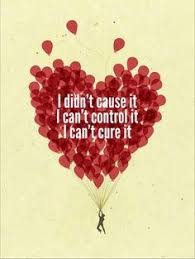
It’s possible to find a safe adult or a trusted friend to talk to about what you’re going through. We’ll provide a resource list below, but in the meantime, you can use your instinct and open up to an adult you trust. They might be a teacher, the parent of a friend, a coach, or a tutor. If they feel safe and trustworthy, talk to them – and begin to build yourself a list of Safe People to Talk To.
Those are the four basic facts you should know. Unfortunately, knowing those things does not change your parent(s) behavior. What this knowledge can do, however, is help you shift the negative feelings you might have about yourself into a more positive place.
****Remind yourself of this– you didn’t cause their addiction, you can’t control it and you can’t cure it!
Growing Up With an Addicted Parent.
When you grow up in a household where one of your parents has an addiction problem, you find a way to deal with the situation. You don’t really have a choice. You have to. The habits you learn and the techniques you use are instinctive, and you develop them out of self-preservation. Some of these habits – often called coping mechanisms – help you manage. Others help temporarily but may have negative consequences in the long run.
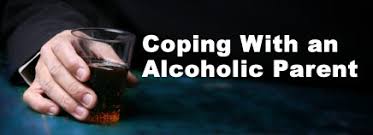
Different kids cope in different ways, and as a teenager, you’ve probably already developed your specific style of coping. Have a look at these next two quotes and think about whether you recognize yourself in them. They’re about how kids and teens cope, and the various things they have to deal with.
The first is another from Jerry Moe:
“Some [children of addicted parents] grow up way too fast by taking on adult roles and responsibilities. For others, this disease blocks the joy, creativity, spontaneity and wonder of childhood.”
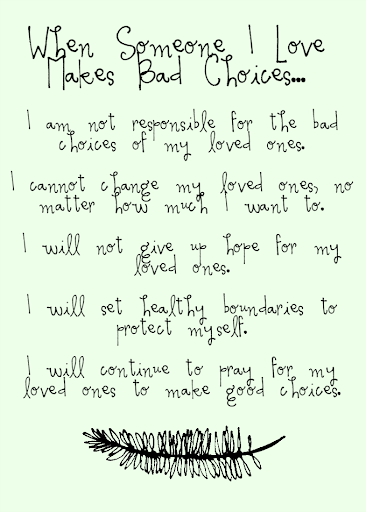
The second is from an expert on adolescent development, Dr. Rob Anda:
“Experiences like growing up with parental addiction, and the chaos and stress that surround it, pop up over and over again as primary causes of toxic stress. But addiction isn’t the only thing we’re looking at here. If a child grows up with addiction, that is probably not the only risk factor in the home. Adverse Childhood Experiences tend to cluster; once a home environment is disordered, the risk of witnessing or experiencing emotional, physical, or sexual abuse actually rises dramatically.”
[DISCLAIMER: Having an addiction does not mean a parent is or will become an abusive parent. However, data indicates that the presence of addiction in a home increases the likelihood of the presence of emotional, physical, and sexual abuse.]
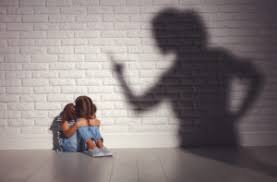
This brings us to an important topic: toxic stress. If one of your parents has an addiction problem, there’s a good chance you experience fear and anxiety almost every day. When you’re at home, you may be afraid of what will happen when your mom and dad gets drunk or high. The mood and atmosphere can change instantly – and that change is often for the worse. When you’re not at home, you may worry about what’s waiting for you when you do get home: is your mom or dad drunk? Will they find a reason to be mad at you? Will they take their stress out on you with physical or verbal abuse?
Developmental exposure to toxic stress has been found in 54% of the addiction population. Toxic stress includes physical/sexual abuse, neglect, loss of a caregiver, and exposure to a dysfunctional household (e.g. domestic violence, exposure to drug use, or exposure to a natural disaster).
How to Handle Toxic Stress.

This state of fear and anxiety – even if you bury it and deny these emotions – creates a toxic environment in your body. That’s what toxic stress does. It raises the levels of stress hormones in your body, which can impair your physical, cognitive, and psychological development.
But that’s only part of the story. The next part is the fact that you can process the toxic stress caused by the trauma of living with an addicted parent. In the words of Dr. Claudia Black, an expert on childhood trauma:
“Experiencing trauma is not a lifelong sentence.”

What she means is that by following simple steps, you can process the trauma of living with an addicted parent and develop healthy, positive coping skills. These skills are empowering and enable you to move past your early home experiences and create a life that’s not defined by your parent(s) addiction problems.
Here is a list of coping skills you can check out.
Jerry Moe calls the steps for handling the type of stress that goes along with having an addicted parent the Seven Cs. You’ll recognize some of them from above – and we repeat them here because they’re worth repeating.
If you’re a teenager, you may feel silly saying these things to yourself. But if you promise to try, we promise we won’t tell anyone. And we promise one more thing: the steps work. Find a safe space and try saying these sentences to yourself:
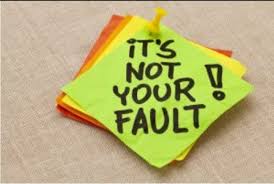
I didn’t cause it, I can’t control it, and I can’t cure it. But I can take care of myself by communicating my feelings, making healthy choices, and celebrating me.
All seven of these sentences are important. The first three are knowledge things, which means they’re internal steps to take. The last four are active things. They’re things you do. We want to you to prioritize two of them: communicating and celebrating.
Empower Yourself to Move Forward.
By communicating, we mean talking to people. If one of your parents has an addiction problem, you can change your entire life by talking to a capable adult about your situation. The science backs that up: studies show that one caring adult can change the course of your life. You can find that adult. They may be a teacher, an aunt or uncle, a school counselor, or perhaps a school psychiatrist. They can help you first by listening, and second, by connecting you to additional support as needed.

By celebrating, we mean getting back to the business of being a teenager. You’re on the cusp of adulthood, but you’re not an adult yet. When you begin to process the experience of living with an addicted parent, you can begin to reclaim the kid inside. That kid is still there. You can be silly, goofy, fun, and ridiculous. Because in addition to growing up, that’s part of the job of being a teenager. We want you to enjoy your teenage years.
There are ways to seek support and find a friendly ear. Reach out to a trusted family member, your pastor or a trusted friend.. One more thing: if you ever feel you are in imminent physical danger, please call 911 immediately.
Resources for Children of Alcoholics/Addiction:
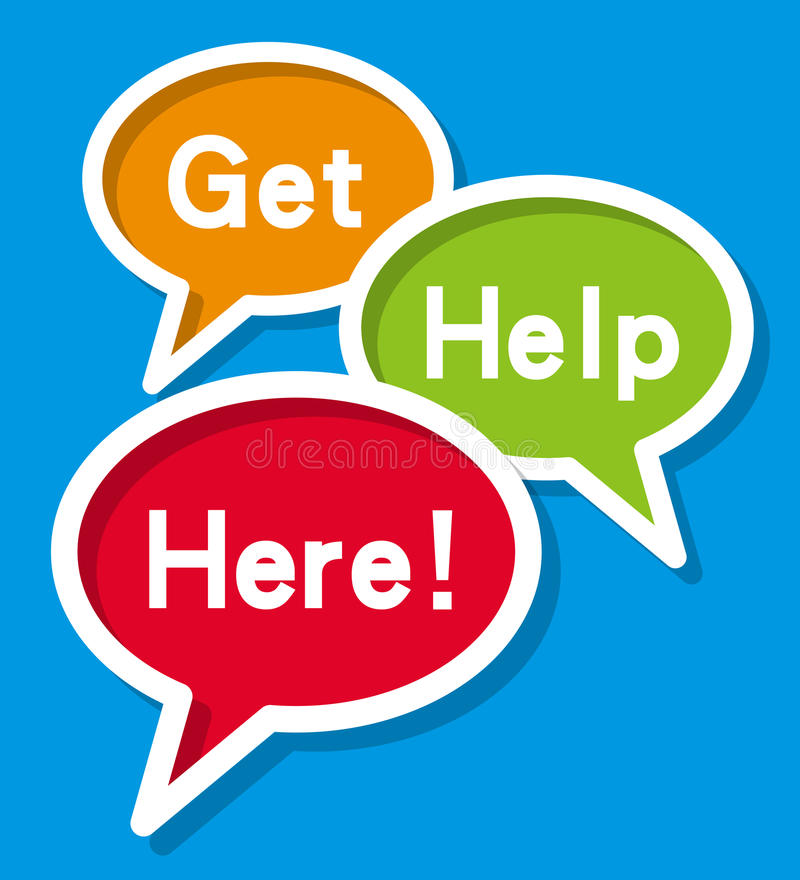
- The National Association for Children of Addiction
- Alateen is a safe space “just for teens affected by someone else’s addiction.”
- Find the Alateen online mobile app/chat here
- Boy’s Town National Hotline (for girls, too):
- 1-800-448-3000
- Text VOICE to 20121
- Childhelp National Hotline (for all kids and teens):
- 1-800-422-4453
- Text: 1-800-422-4453
- Click here for live chat
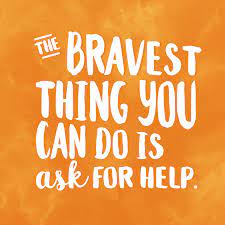
If you’re a teen and you need help reach out to God! And please use these resources above for professional help. It’s within your power to change your life.
Never give up on your parent(s) or yourself. God is with you in your struggles!

Galatians 6:9–“Let us not become weary in doing good, for at the proper time, we will reap a harvest if we do not give up.”
Jeremiah 29:11 — “For I know the plans I have for you,” declares the Lord, “plans to prosper you and not to harm you, plans to give you hope and a future.”
1 Thessalonians 5:17–Pray without ceasing.

Hello! I simply wish to give you a big thumbs up for the excellent info you have right here on this post. I will be coming back to your web site for more soon.
Hi! Thank you for your kind words. I so much appreciate you taking the time to read my blogs and sharing with your sister. Helping others is my entire purpose driving me to write. I have a passion for writing faith based, addiction recovery and I hope you continue to follow me and share my site with your friends and family.
Blessing my friend in Christ!
Sincerely,
Cynthia Estes
https://amotherspiritualbattlewithaddiction.com